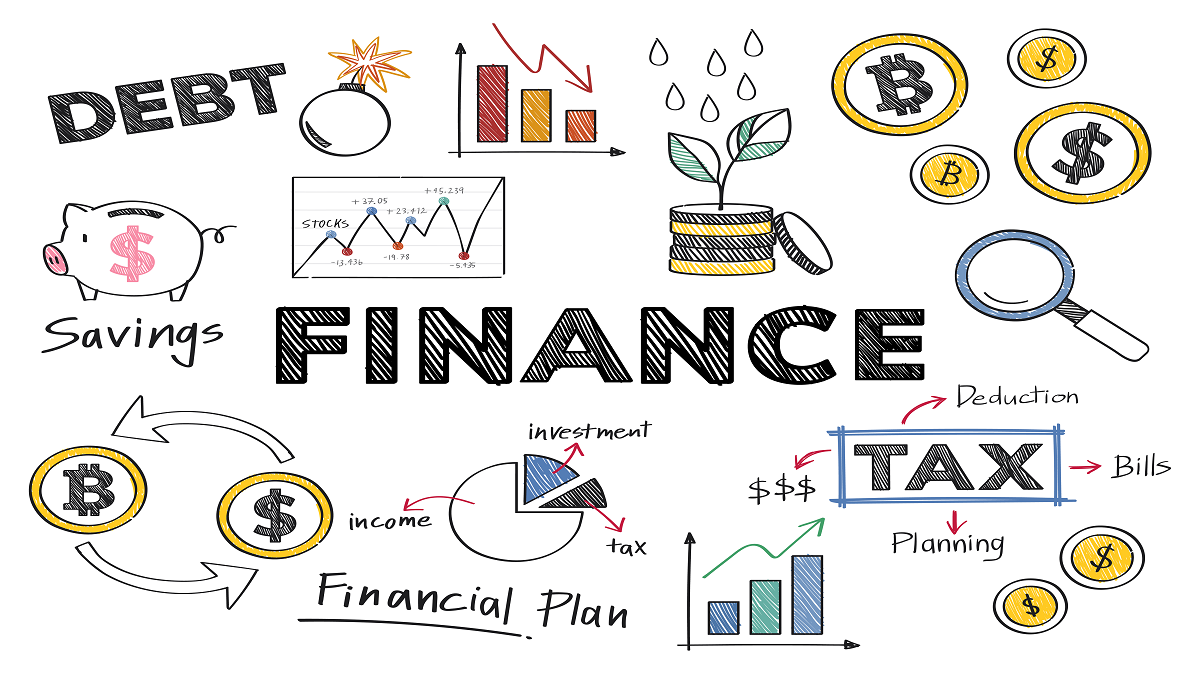From the wiki and dictionary;
Noun: the management of large amounts of money, especially by governments or large companies.”the firm’s finance department”
Verb: provide funding for (a person or enterprise).
Dictionary; Definitions from Oxford Languages
Finance refers to the allocation of resources (often as Money) and management of money. Particularly in terms of acquiring, investing, and managing funds. It involves various activities related to the creation, utilization, and management of financial assets and resources within an organization, individual, or economy as a whole.
Finance is defined as the management of money and includes activities such as investing, borrowing, lending, budgeting, saving, and forecasting.
Corporate Finance Institute; Finance Definition; Witten By; Tim Vipond
Finance is concerned with the art and science of managing money.
Finance is a term for matters regarding the management, creation, and study of money and investments. It involves the use of credit and debt, securities.
What Does Finance Mean? Its History, Types, and Importance Explained; By Adam Hayes
Finance is all about the management of money, assets, and financial resources. It involves making decisions about acquiring, investing, and allocating funds to achieve financial goals and maximize returns while managing risks.
It is the field of study and practice concerned with the management of money, assets, and financial resources. It encompasses a wide range of activities, including personal finance, corporate finance, investment management, and financial market operations. Finance plays a vital role in modern economies by facilitating capital allocation, risk management, and wealth creation.
Finance encompasses the concepts, strategies, and activities related to the management of money and financial resources. It involves making decisions about raising capital, investing in assets, and optimizing financial structures. Finance covers various areas, including personal financial planning, corporate financial management, investment analysis, and trading in financial markets. It is a crucial discipline for individuals, businesses, and institutions seeking to achieve financial objectives and make informed financial decisions.
Finance encompasses a wide range of activities and concepts, including:
Personal Finance: This involves managing one’s personal financial resources, such as budgeting, saving, investing, retirement planning, and managing debts.
Corporate Finance: In a business context, corporate finance focuses on managing the financial resources of a company. This includes decisions related to capital budgeting (investing in long-term assets), capital structure (mix of debt and equity financing), and working capital management (short-term operational funding).
Investment Management: This involves making decisions about how to invest funds to achieve financial goals. It includes portfolio management, asset allocation, and risk assessment.
Financial Markets: These are platforms where various financial instruments, such as stocks, bonds, commodities, and derivatives, are bought and sold. Financial markets play a crucial role in determining the value of assets and facilitating efficient capital allocation.
Financial Institutions: These include banks, credit unions, insurance companies, investment firms, and other entities that provide financial services, such as lending, borrowing, investing, and risk management.
Risk Management: This involves identifying, assessing, and mitigating financial risks, such as market risk, credit risk, operational risk, and liquidity risk.
International Finance: This deals with financial transactions and decisions that cross national borders, including foreign exchange rates, international investment, and global trade.
Public Finance: This involves managing the financial resources of governments and public entities. It includes budgeting, taxation, public expenditure, and debt management.
Behavioral Finance: This field explores how psychological factors influence financial decisions and market behavior, often challenging traditional economic assumptions.
Financial Planning: Developing comprehensive plans to achieve financial goals, which may involve strategies for saving, investing, retirement, estate planning, and more.
Overall, finance is a critical aspect of modern economies, businesses, and individual lives. It provides the tools and concepts needed to make informed financial decisions, allocate resources efficiently, manage risks, and achieve various financial objectives.
Know more about; Financial Systems, Financial Markets, and The Global Trading Market
References I’ve used to write these above;
